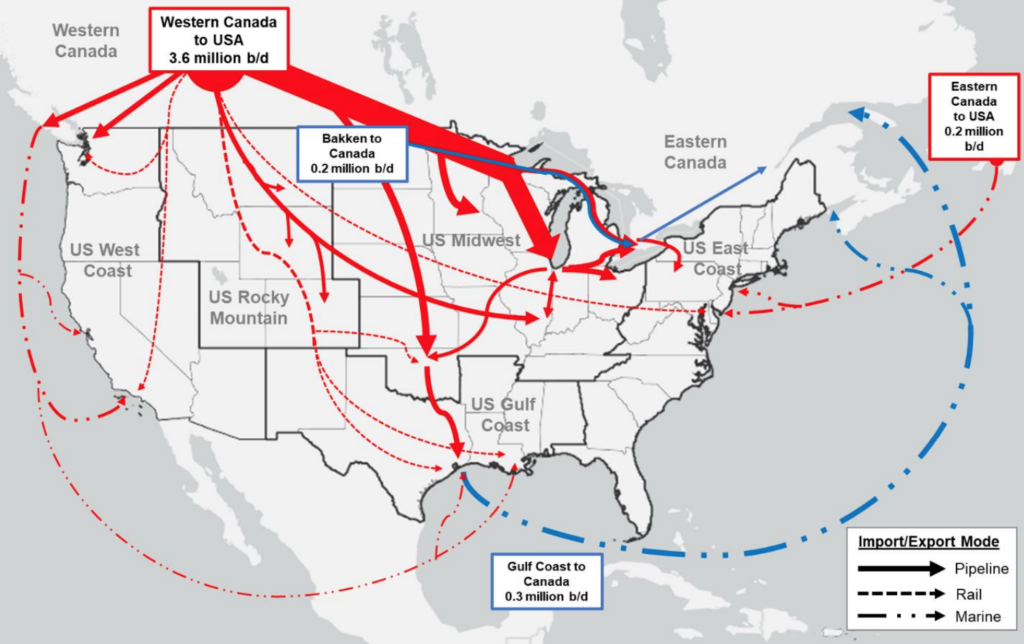Cross border energy infrastructure is a vital part of the energy relationship between the United States and Canada, a new study by the American Petroleum Institute has concluded; specifically, the report examines how cross-border petroleum trade between the two countries has led to further integration of their energy markets with numerous benefits for both.
Consequently, cross-border energy infrastructure is critical to sustain and to boost this trade relationship, to further integrate the North American Energy markets. Further integration would strengthen both countries energy security, said API Senior Vice President of Policy, Economics and Regulatory Affairs Frank Macchiarola.
He also remarked. “The integration of U.S. and Canadian energy markets has been a win-win for both countries; it supports economic growth and lowering energy costs for working families while bolstering North American energy security.”
In addition, he remarked, during the study’s presentation, on the 2021 Scotiabank CAPP Energy Symposium. “None of this would be possible without the cross-border energy infrastructure; it enables the safe and efficient transport of these energy resources. Continued development and also maintenance of this critical infrastructure is essential to furthering the success and mutual benefits of this important trade relationship.”
Also recommended for you: Swift Current Energy acquired by Buckeye Partners and Nala Renewables. Click Here.


Energy infrastructure to strengthen markets integration
Moreover, some of the points that the study highlighted, were that the U.S. and Canada’s petroleum markets are increasingly integrated. In fact, petroleum liquids trade nearly doubled over the past decade; now, they represent 10 to 20% of the total U.S. Canada energy trade flow.
As a result, the increased imports of Canadian crude combined with booming domestic production have allowed U.S. refiners to significantly reduce crude oil imports from OPEC; at around 70% from 2010 to 2019.
On the other hand, the increase has left substantial benefits to U.S. refiners. In fact, it has enabled more than $3,2 billion increase in some state’s Gross Domestic Product during 2019. Including, Illinois, with $2,2 billion; Minnesota, with $773 million; and Oklahoma, with $512 million, among others.
Finally, this study by API may bring some light to the Joe Biden’s administration. On its pursuit to achieve energy transition and a cleaner energy sector, has also axed important midstream projects between the U.S. and Canada, like the infamous KXL project. But more importantly, Enbridge’s Line 5.
Find the full study here. And an executive summary, here.

